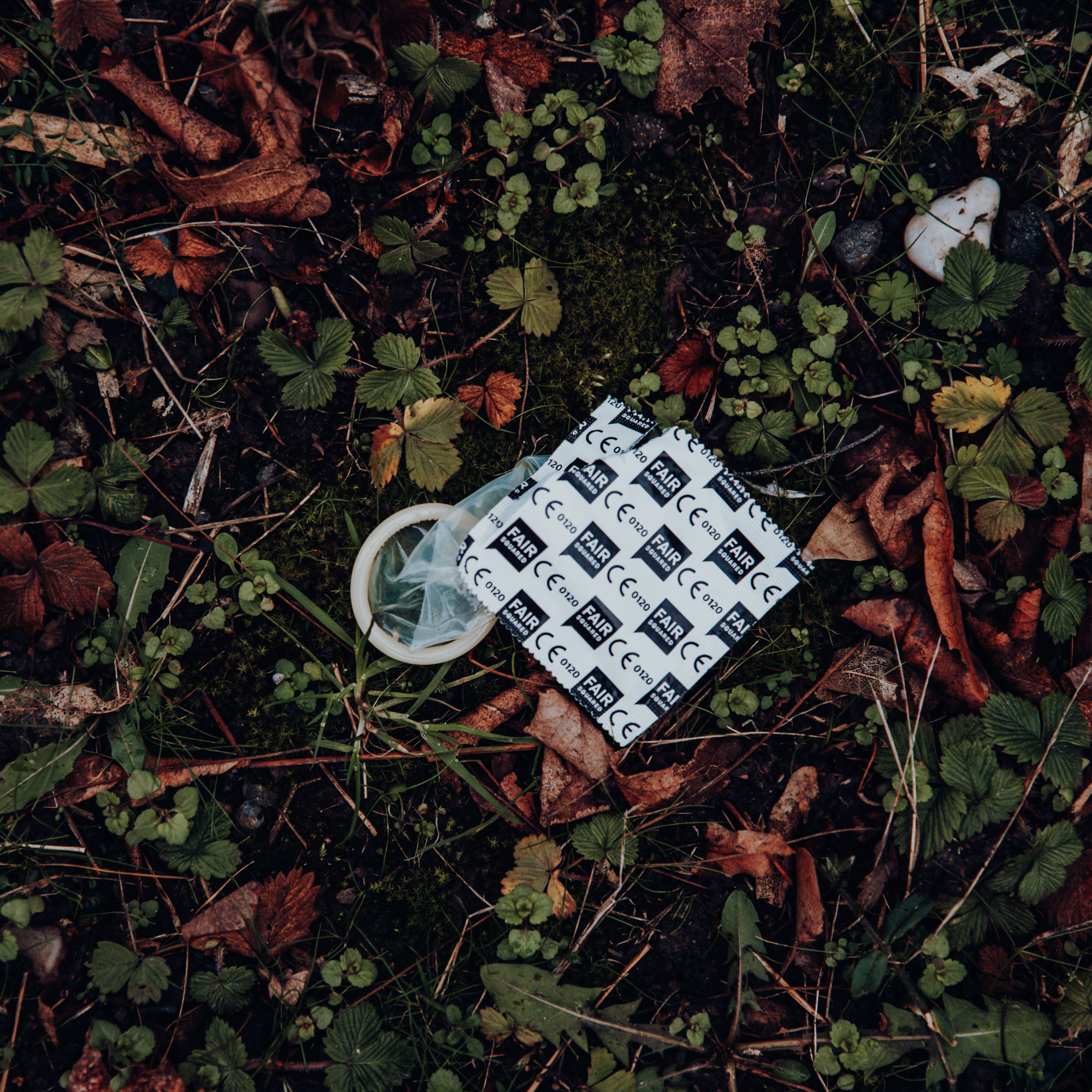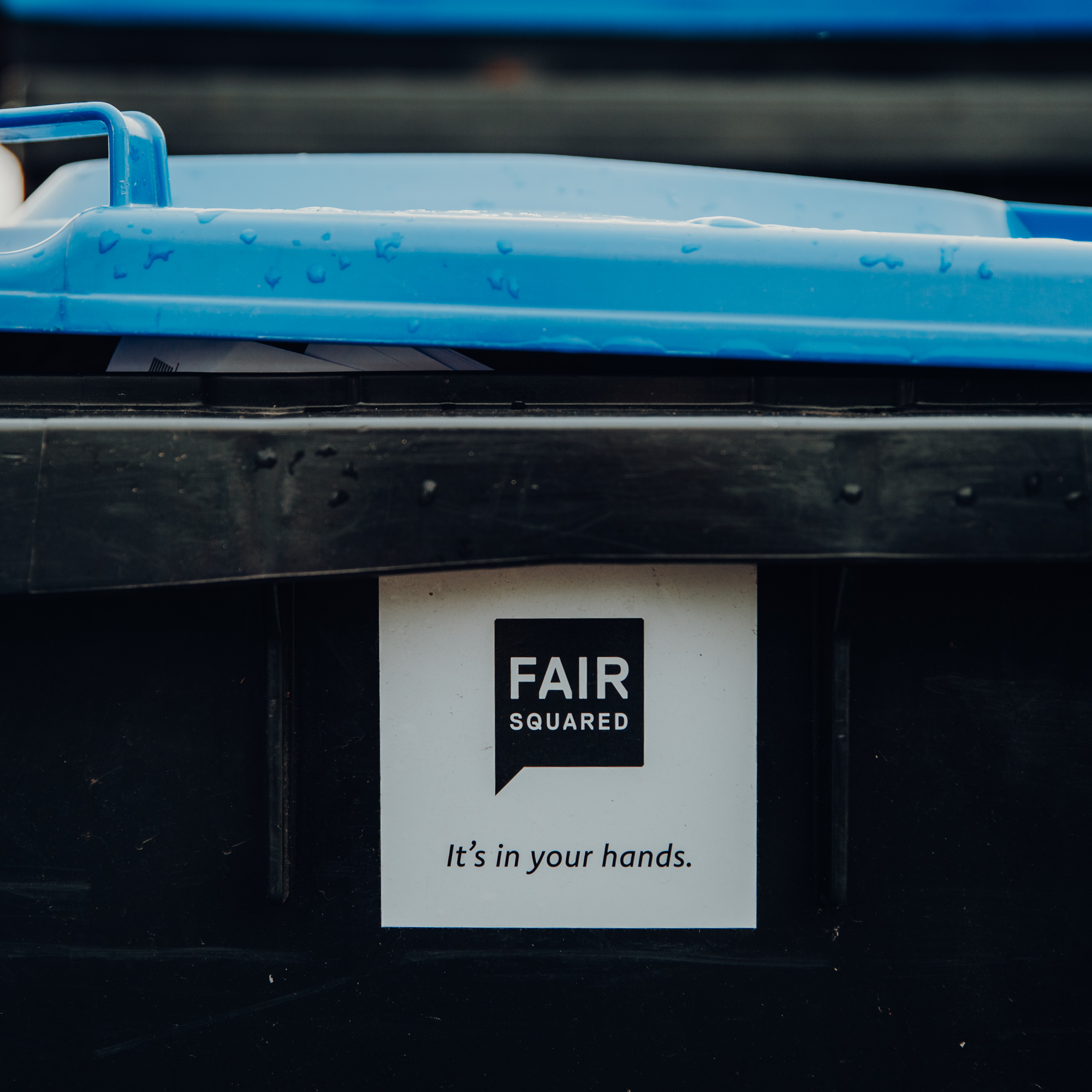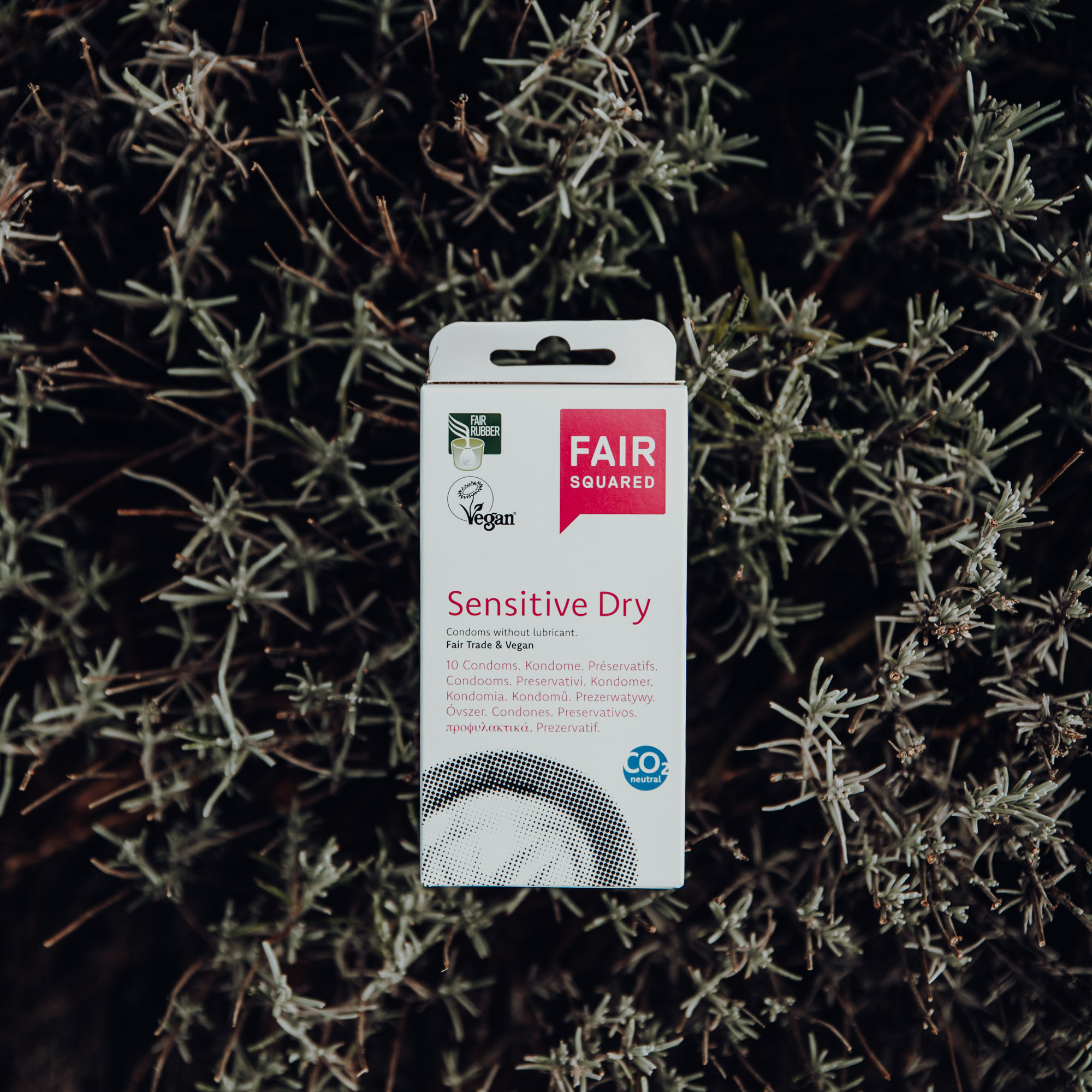



Can Condoms Really Be Sustainable? – What you should consider regarding materials, origin and disposal
Condoms prevent 99% of unplanned pregnancies and therefore the existence of another human being, which according to researchers could save around 59 tonnes of CO2 equivalent per year. From this point of view, condoms per se are super sustainable, aren’t they? 😋 All joking aside, there are of course versions and variants when it comes to contraception/protection against STIs that have less of an impact on the environment than others. We summarised the main factors here for you and what you should consider when buying condoms as well as disposing of them.
Ingredients and origin – natural equals sustainable?
Condoms are usually made of natural rubber, which is extracted from the latex sap of the rubber tree. The botanical name is Hevea Brasiliensis and these trees only grow in certain tropical regions of the world. FAIR SQUARED sources the rubber for its condoms from India and Thailand, for example. In terms of sustainability, the focus here is primarily on cultivation conditions and processing: unfortunately, it is quite common for the cultivation of natural rubber to be associated with human rights violations and deforestation. For a long time, there was no possibility of certifying the raw material in order to assure socially and ecologically fair cultivation conditions.
With the founding of the Fair Rubber Organisation (www.fairrubber.org) in 2012, in which FAIR SQUARED was involved, the well-known and proven certification scheme of Fair Trade tea plantations was transferred to plantations for natural rubber. This ensures fair pay and improved working and living conditions for many latex tappers and their families thanks to fair trade premiums. At the same time, responsible use of resources and protection of the environment are guaranteed.
Packaging – life in plastic is not fantastic!
The way condoms need to be packaged is laid down by law in Europe. Classified as a class IIB medical product, it must be ensured that contamination is avoided at all cost and that the condoms are packed airtight so that they have a shelf life of 5 years. Likewise, no condom may be sold without a description of use. This results in two types of packaging: on the one hand, there is the outer packaging made of cardboard with the corresponding product information and on the other hand, the condom foil, which usually consists of three foil layers (plastic-aluminium-plastic). FAIR SQUARED is now using an innovative paper layer that has replaced one plastic film layer. This reduces the overall plastic content by more than 40%. In addition, the FAIR SQUARED cardboard packaging is completely recyclable, as no synthetic colours or glossy prints are used. For those who want to save even more cardboard, FAIR SQUARED also offers purchasing condoms in packs of 100. This lets the heart of every sustainable shopper skip a beat, right? 💚
Disposal – just don’t put them in the compost!
As we have now learned, condoms are made of natural rubber latex. Natural rubber is 100% biodegradable and does not harm the environment – yay! But most preservatives around the world are also coated with silicone oil as a lubricant to make insertion more comfortable. Unfortunately, there is currently no natural alternative for these so-called wet condoms. Why? If condoms were coated with a water-based lubricant, the lubricant would largely diffuse out of the foil after a short time (around 6 months). FAIR SQUARED has therefore come up with a truly sustainable alternative: a dry condom with a corn powder coating! These condoms are fully biodegradable and users can decide individually which and how much lubricant to use. 💪
Now we come to a rather important point: In which waste do I put my used condom? For moistened condoms, the answer is crystal clear – residual waste! This is because the silicone oil it contains cannot be biodegraded or recycled. The natural rubber on the other hand is biodegradable, but not compostable. To explain the terms: biodegradable means that the material can be decomposed by microorganisms. Compostable, however, means that a material is suitable for making compost. Contraceptives are not suited for this purpose! Because used condoms can attract animals and harm them if they eat them. And we all don’t want that, do we? If you use FAIR SQUARED Sensitive Dry without an additional lubricant or one that is for sure biodegradable, you will have fully degradable materials in the bin, “but the time it takes for them to decompose completely will be too long to meet the requirements for organic waste, similar to waste bags made of corn starch”, we were told by the Cologne Waste Management. So the same goes here: put them in the residual waste bin as this is the best thing you can do for the environment. 🙏 And if you want to do animals and the environment another favour, you should also look for certified-vegan condoms. Some producers actually use casein in the production process, an animal milk protein. FAIR SQUARED condoms are all vegan and, of course, not tested on animals.
Wrapping it up – can condoms really be sustainable? Yes they can! When buying condoms, make sure to look out for certified fairly traded natural rubber, vegan seals, recyclable paper packaging and – last but not least – dispose of them properly. Then nothing will stand in the way of sustainable lovemaking! And now have fun with the most beautiful thing in the world. 😘
28. January 2021
